Frontier Markets News, March 24th 2024
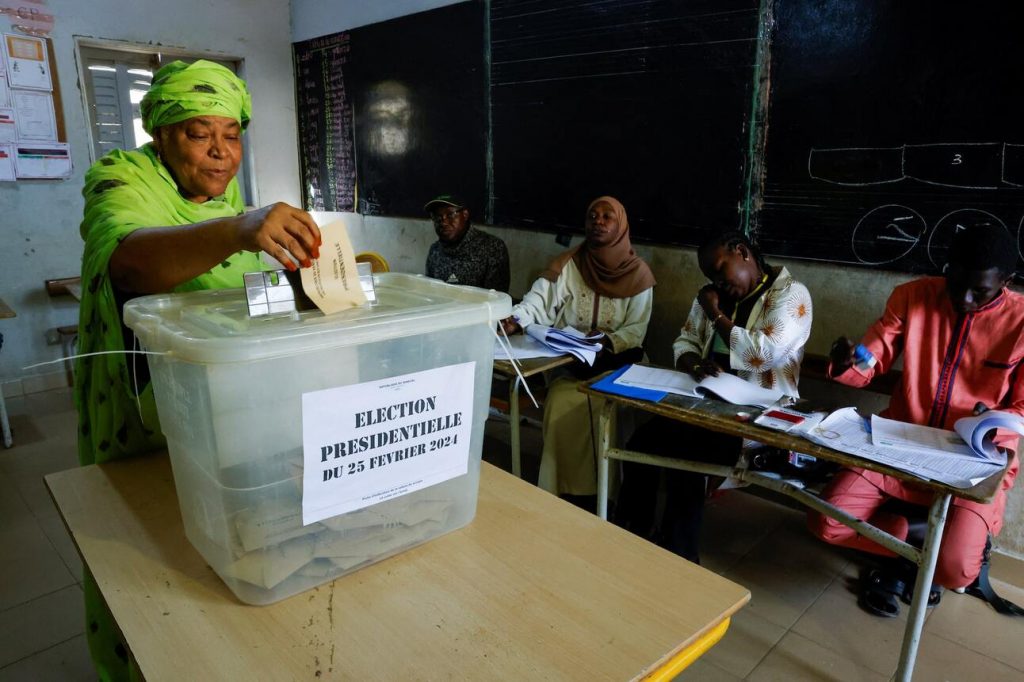
Dear Reader,
Frontier Markets News is on a mission to bring unbiased insight and intelligence about key developments in small emerging markets to a global audience.
If you are enjoying this newsletter and would like to help support that mission, please consider upgrading to a paid subscription today.
Sent this by a friend? Sign up here to receive FMN in your inbox every weekend.
By Ken Stibler, Noah Berman and Nojan Rostami. Executive editor: Dan Keeler
Africa
Senegal votes in presidential election
Senegal is taking to the polls today in its first ever presidential election that does not include an incumbent.
The contest comes at an uncharacteristically tempestuous moment in Senegalese politics, which have long been considered among the most stable in West Africa. In February, President Macky Sall postponed the election, raising concerns about the future of Senegal’s historically-solid democracy as coups become more common across the continent.
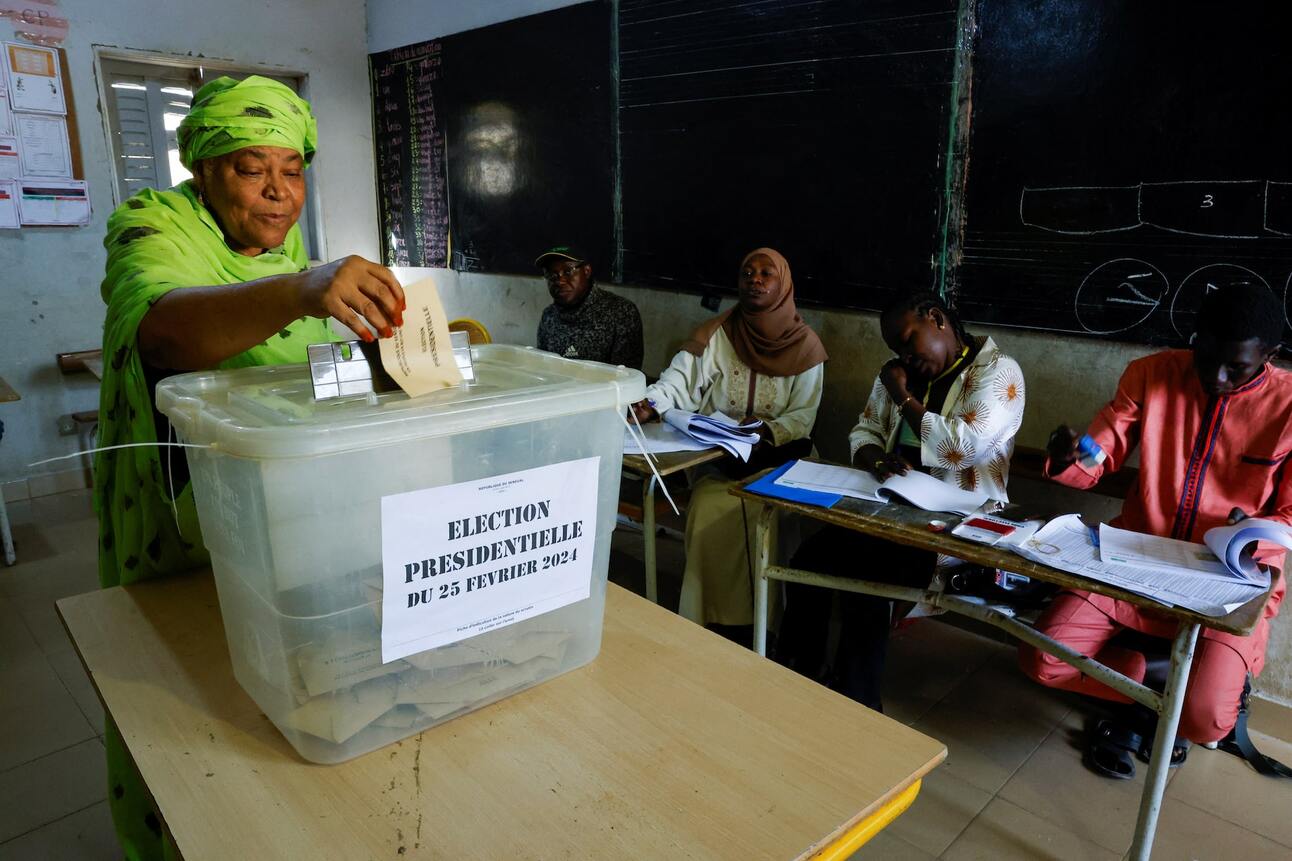
The 18-person field is viewed as a contest between Amadou Ba, the chosen successor of outgoing President Macky Sall, and Bassirou Diomaye Faye, the candidate favored by opposition leader Ousmane Sonko. Both Faye and Sonko were released from prison last week after being arrested last year on charges that their supporters say were politically motivated.
If no candidate wins the 50% of the vote required to assume presidential office, it is not clear who will govern Senegal next month. Sall says he will leave office on April 2, the day his term ends, no matter what, BBC reports.
Egypt’s reforms begin to bear fruit
Flush with cash from international lenders, Egypt made additional reforms to its economy this week that raised investor optimism in Africa’s third-largest economy.
Egypt raised fuel prices by more than 15% on Friday, two weeks after allowing its currency to float and hiking interest rates by 6%. The increase in fuel prices is part of Egypt’s newly boosted deal with the IMF, which agreed earlier this month to lend Cairo $8 billion.
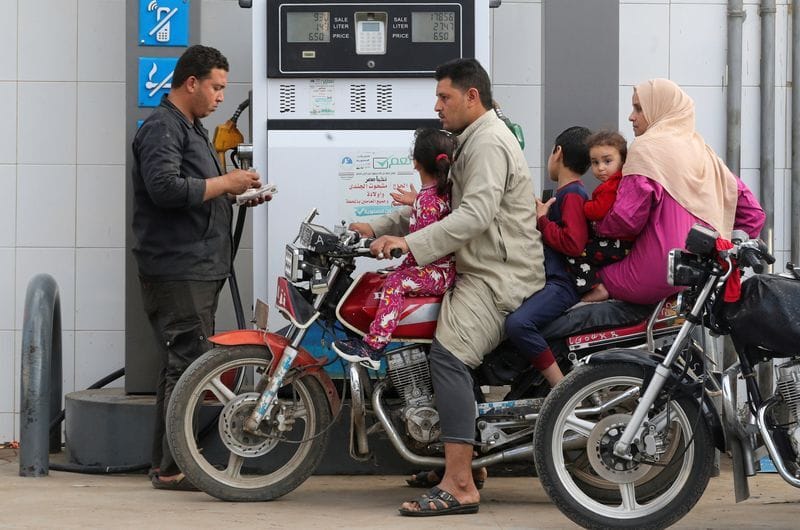
The Egyptian economy is already showing positive signs. After falling by 40% after the removal of its peg, the Egyptian pound has appreciated by 10%. But analysts are not sold that Egypt, which has a long history of announcing reforms and backtracking on them, will maintain its move toward fiscal responsibility—especially while the pound is hot.
“The true test of the pound’s newfound flexibility…will be if and when it comes under downward pressure,” research firm Capital Economics said in a note this week.
Niger threatens to expel US troops
Niger’s ruling military junta announced last weekend that it would end security cooperation with the US, the FT reports. But by mid-week, US officials said that they had received ”mixed signals” from the junta about whether US troops could stay in the Niger, a longtime US security partner.

In last weekend’s announcement, a Niger military spokesman claimed a 2012 military agreement with the US was “illegal” and “profoundly unfair” to Nigeriens. But it remains unclear whether the end of the agreement means that Niger will require the 1,000 US military personnel and contractors in the country to depart.
The Nigerien announcement followed a visit to Niger by a US diplomatic delegation that American officials described as tense, the New York Times reports. The officials criticized growing ties between the junta and Russia, a proposed deal that would give Iran access to Niger’s uranium reserves, and the slowness of the return to civilian rule. Niger bridled at the diplomats’ “condescending attitude,” Al Jazeera reports.
Ethiopia pushes for IMF deal
IMF officials arrived in Ethiopia this week to iron out the details of a loan deal that will be critical to maintaining the country’s economic stability.
Ethiopia is one of four countries pursuing debt restructuring under the G20 common framework, an international debt relief initiative that is conditioned on the presence of an IMF program. Ethiopia requested $3.5 billion from the IMF this week, Africanews reports.
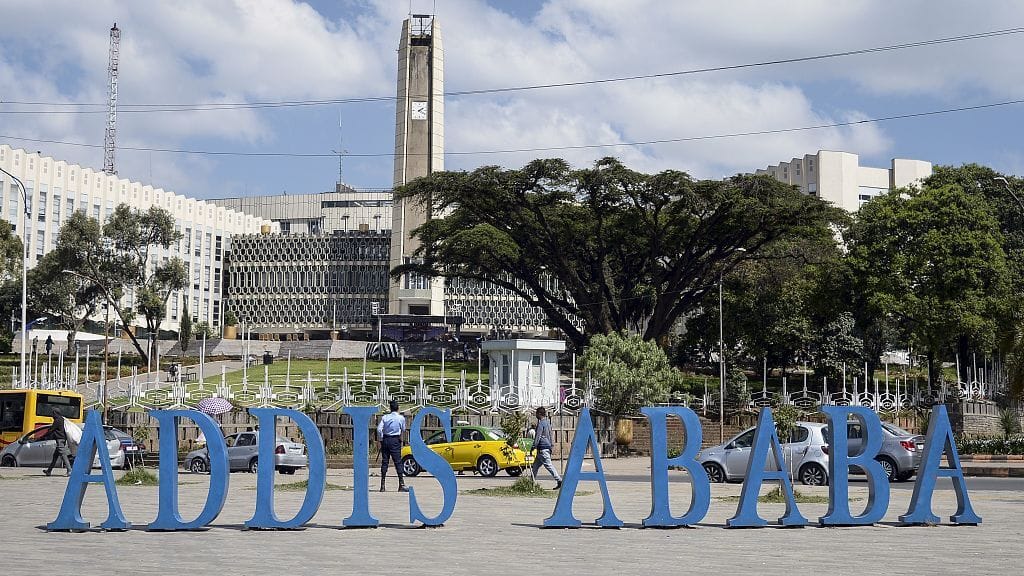
Compounding financial headwinds boiled over in Ethiopia last winter amid soaring inflation and a shortage of foreign currency reserves. In December, Ethiopia failed to make a eurobond interest payment, and Addis Ababa expects to run an $11.5 billion budget shortfall over the next four years, Bloomberg reports.
Securing IMF funding will be critical to addressing that gap, in part because the country’s bilateral creditors—not including China—have said that an existing deal to suspend debt service until 2025 could be voided if Ethiopia does not reach a deal with the fund this month, Reuters reports.
Asia
Vietnamese president’s resignation overshadows US trade visit
The president of Vietnam resigned this week amid allegations of corruption, the Guardian reports, becoming the second leader to step down in the past two years.
Vo Van Thuong’s resignation coincided with a visit to the Southeast Asian nation this week by representatives of some 60 US companies. The firms were focused on investment opportunities in emerging technologies such as artificial intelligence and semiconductors.
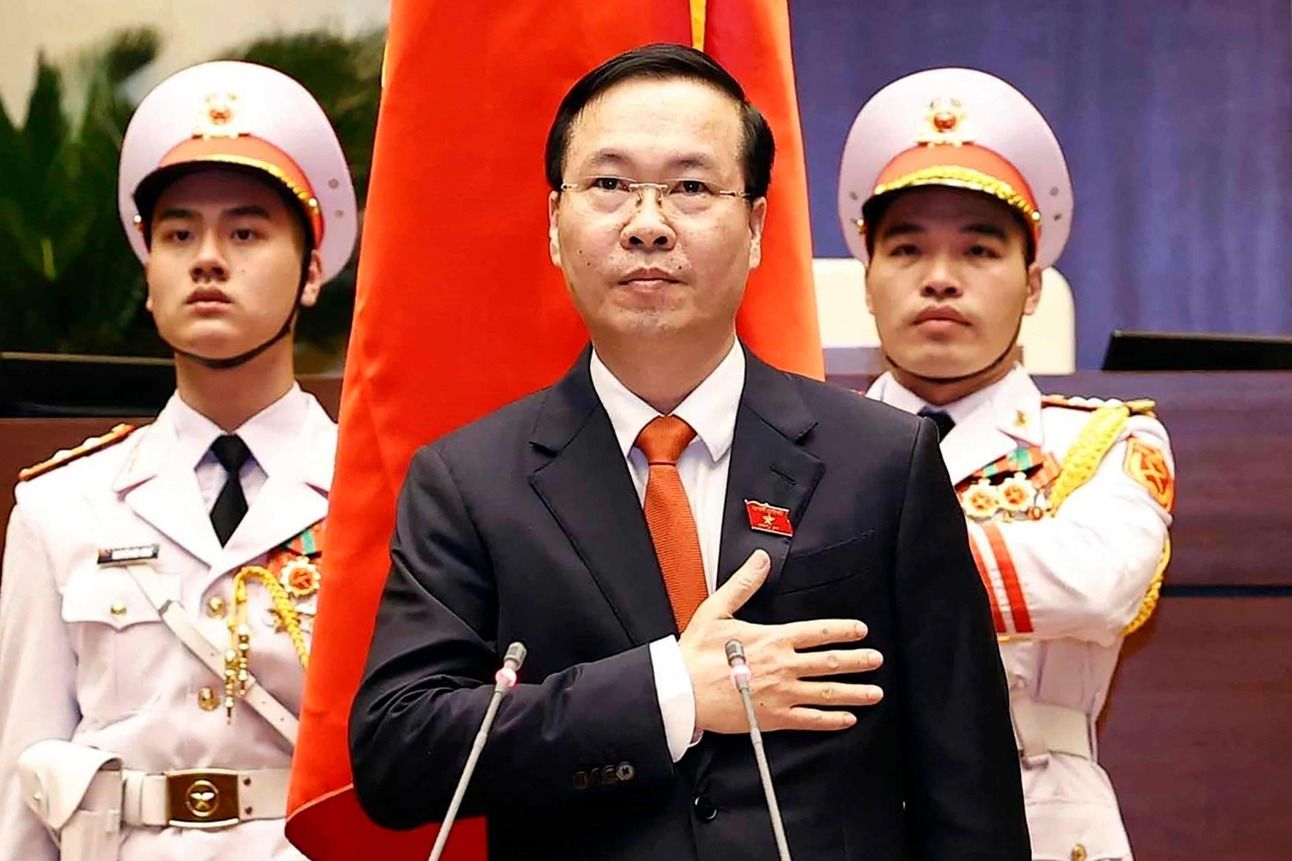
The trip reflected increasing corporate interest in Vietnam, whose relationship with the US was last year upgraded to a “comprehensive strategic partnership.” The visit this week included the largest ever number of US companies, Nikkei reports, and followed a similar trip by US executives to the Philippines last week.
Tension rises between Afghanistan and Pakistan
Pakistan launched airstrikes against Afghanistan on Monday that killed eight people, including three children, Afghan officials said. The strikes come on the heels of escalating attacks by militants in Pakistan that Islamabad says are sheltered by Afghanistan’s ruling Taliban government.
Two days before the action, militants attacked a Pakistani outpost near the Afghan border. Pakistani officials said Monday’s airstrikes targeted militant hideouts, VOA reports.
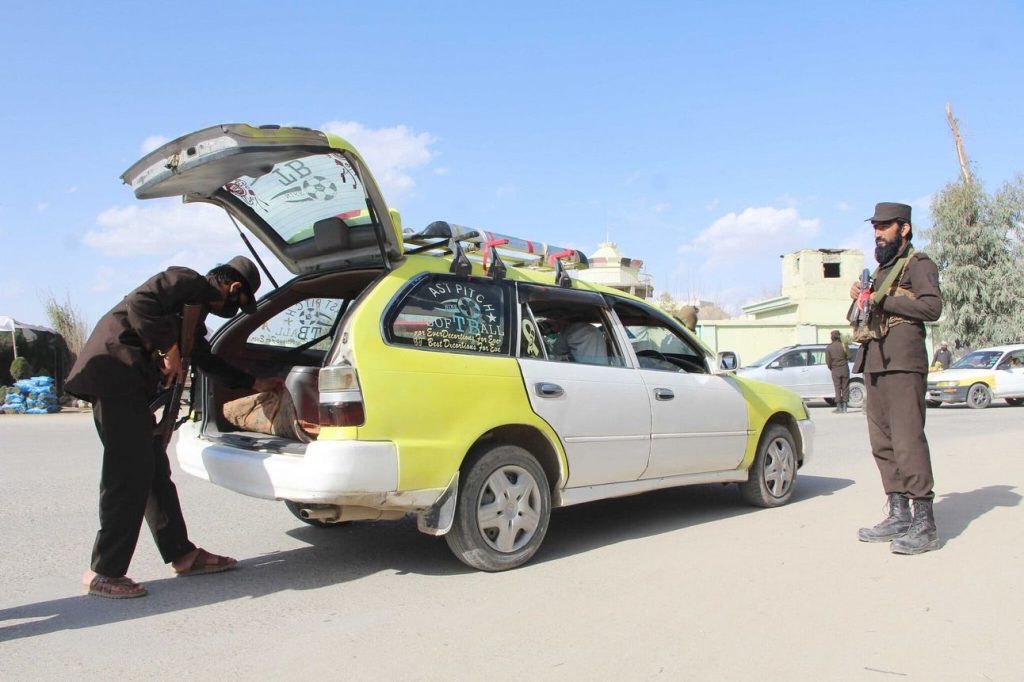
The violence threatens to raise tensions between Pakistan and the Taliban, which have a historically irascible relationship. On Monday, a Taliban spokesman posted on X that “incidents” such as the strikes “can have very bad consequences which will be out of Pakistan’s control.” Meanwhile, Pakistan’s renewed willingness to hit Afghan territory—it was the first such strike in two years—could signal the desire of newly elected Prime Minister Shehbaz Sharif to take a tough stance against the Taliban, the New York Times reports.
Did someone forward this to you? Subscribe at FrontierMarkets.co
Middle East
Turkey to establish military presence in Iraq for counterterrorism as US contemplates withdrawal
Following last week’s agreement between Turkey and Iraq to collaborate on an anti-PKK campaign, Reuters reports this week that Turkey has proposed a “joint operation center” to coordinate an extended counterterrorism campaign. Iraqi officials reportedly responded warmly to the proposal, and Turkish President Recep Tayyip Erdogan is to visit Iraq at the end of Ramadan to sign a formal strategic agreement.
Turkey’s proposal to establish “secure zones for counterterrorism” comes as Iraq and the US engage in talks to end the long American military presence in the country.
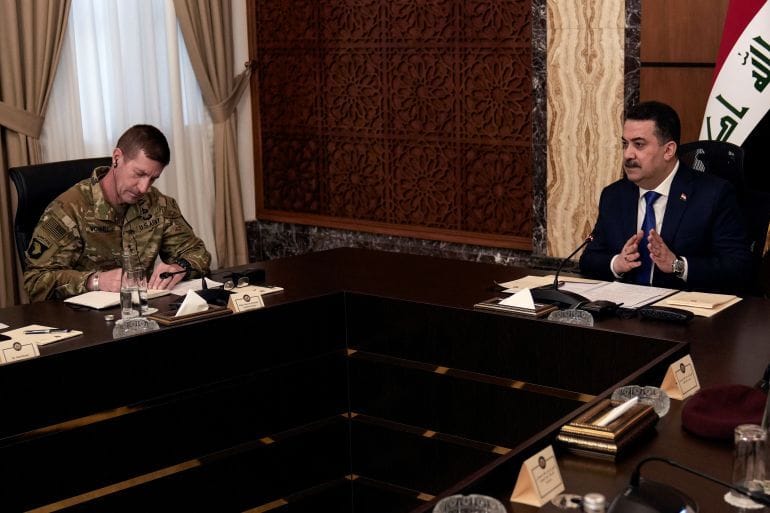
Long a contentious issue in Iraq, the US presence has come under increasing fire, literally and figuratively, after the October 7 attack in Israel, and an increased Turkish presence could be seen by some in Iraq as filling the security gap created by a potential US exit.
Pakistan presses ahead with Iran gas pipeline in face of US opposition
Pakistan has announced it will move ahead with its plan to build a natural gas pipeline connecting its southern port of Gwadar with Iran despite not receiving a US sanctions waiver, claiming that there is “no room for any discussion” about whether Pakistan can proceed with construction on its own territory. The US has strongly opposed the pipeline since 2009, when Iran and Pakistan first signed a natural gas sale agreement in spite of US sanctions on Iran’s oil & gas industry.
The pipeline had faced delays on the Pakistani side of the border since 2009 due to Pakistan’s fear of violating US sanctions. Iran apparently completed its section by 2011 and threatened international arbitration to force completion by Pakistan, making this week’s construction announcement by Pakistan a significant win for Iran, potentially growing Iran’s energy exports and supporting its struggling economy.
Europe
EU moves to reduce Russian and Belarusian grain imports
The EU is poised to levy substantial tariffs on grain imports from Russia and Belarus, potentially making the purchase of such commodities uneconomic, the FT reports. The move is the bloc’s first restriction on food products since Moscow’s full-scale invasion of Ukraine and comes amid mounting pressure from farmers and certain member states.
The European Commission plans to impose a €95-per-tonne duty on cereals from Russia and Belarus, increasing prices by at least 50%. Additionally, tariffs of 50% will be levied on oil seeds and derived products. These measures are expected to eradicate demand in the EU for Russian and Belarusian grain, which reached a record 4 million tonnes in 2023.
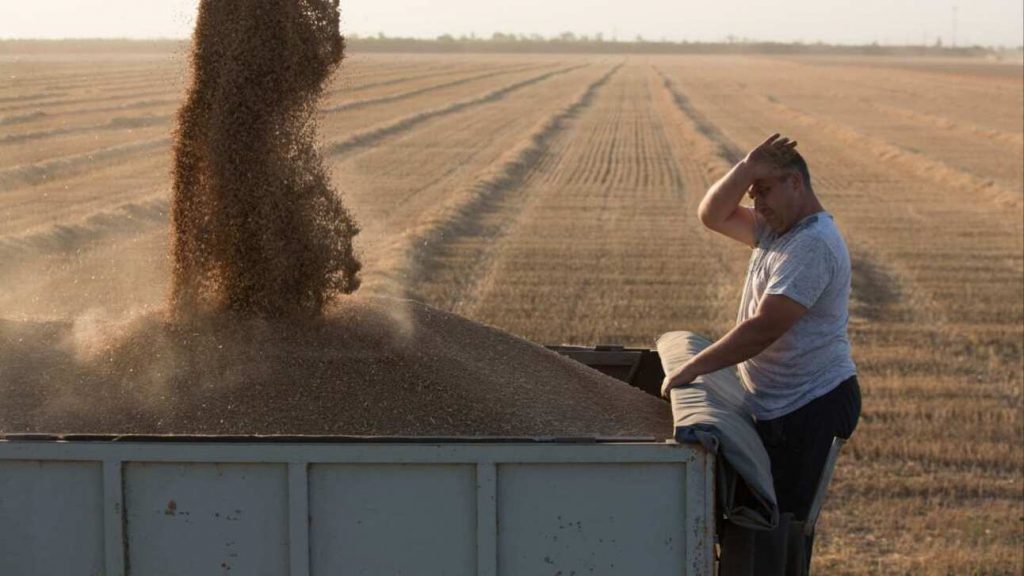
While Brussels previously resisted calls for import restrictions, citing concerns over disrupting global food markets and hurting developing nations, the proposed tariffs aim to placate protesting farmers across the EU. The decision also aligns with efforts to increase pressure on Moscow while ensuring no grain stolen from Ukraine enters the bloc under the guise of Russian or Belarusian produce.
Turkey doubles down on fight against inflation
In a decisive move to combat runaway inflation and stem capital flight, Turkey’s central bank surprised markets by raising the benchmark interest rate by five percentage points to 50%. The move defied expectations of a pause ahead of local elections on March 31 and underscores policymakers’ determination to restore credibility and rein in inflation, which has soared to near 70%.
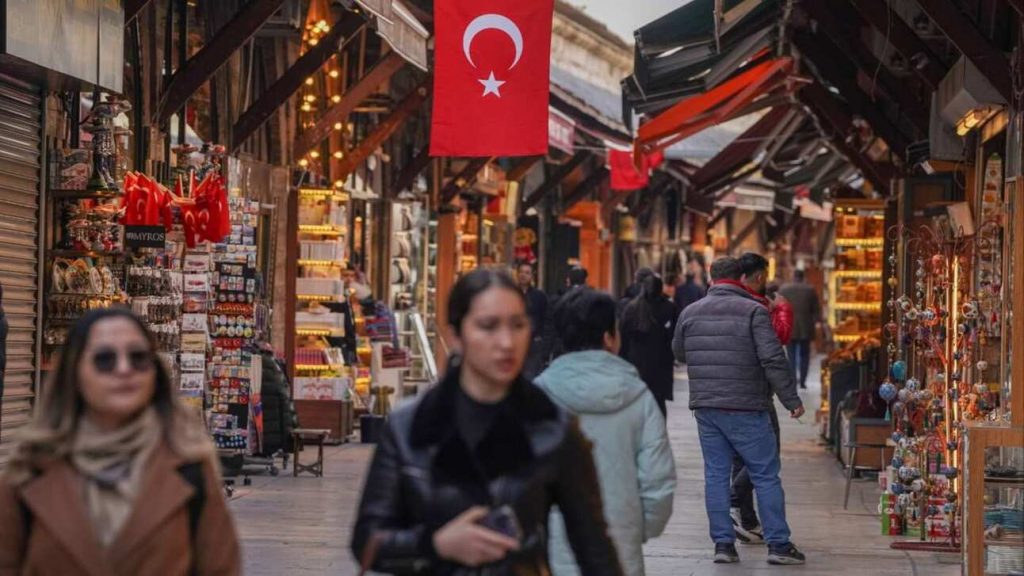
The rate increase, coupled with additional measures to curb credit-card spending and incentivize lira savings, marks a significant departure from the unorthodox policies that had exacerbated economic turmoil under President Recep Tayyip Erdoğan’s previous administrations. Analysts view the central bank’s move as a crucial signal that it remains committed to its tight monetary stance until inflation is firmly on a downward trajectory.
Turkey’s newfound policy flexibility has been bolstered by a recent sovereign rating upgrade from Fitch, reflecting reduced macroeconomic vulnerabilities since the government’s pivotal policy shift in June 2023. As the country taps international bond markets and considers debt restructuring options, investors are cautiously optimistic that the latest measures will finally anchor inflation expectations and pave the way for sustainable economic stability.
Latin America
Cuban regime faces stark choice as protests grow
Cuba’s long-building economic problems appear to have reached a tipping point, with dire shortages of food, fuel, and electricity sparking rare displays of public discontent across the communist-run island, Bloomberg reports. Protests erupted in Santiago de Cuba and other cities last weekend, with chants of “corriente y comida” (power and food) reflecting the population’s mounting frustration with prolonged blackouts and dwindling supplies.
The Caribbean nation is grappling with its worst economic crisis since the fall of the Soviet Union over three decades ago, and last month took the unprecedented step of requesting emergency food aid from the UN.
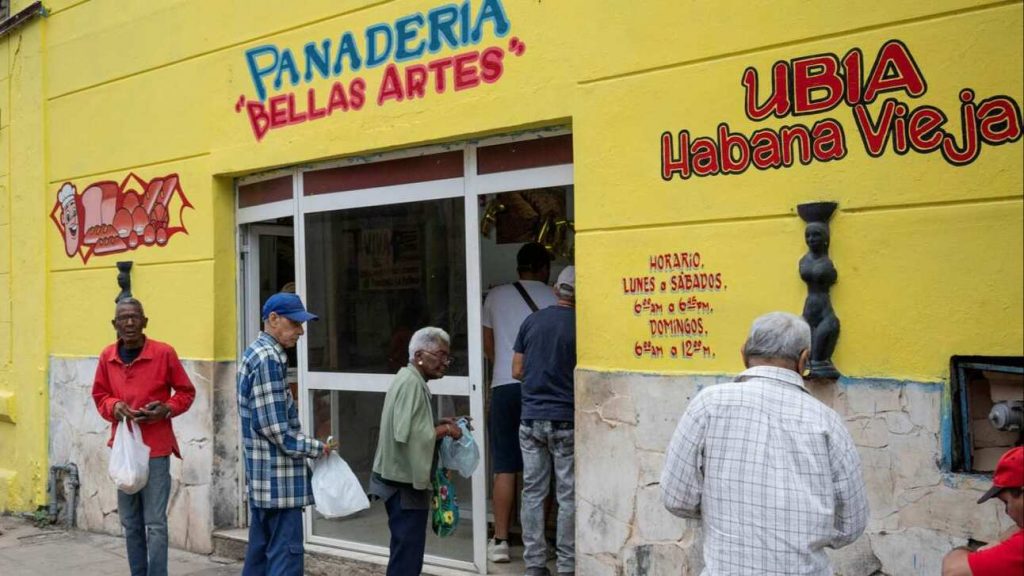
While the country’s aging leadership points fingers at the long-standing US embargo and alleged internal corruption, the root causes run deeper: a crumbling centralized economy, an exodus of educated youth, and waning support from ideological allies. The regime now faces a stark choice, Bloomberg columnist Juan Pablo Spinetto argues: double down on repressive tactics or embrace substantive reforms to open up the economy and address the legitimate grievances of a restive population.
Ecuador’s war on gangs delivers political wins at an economic cost
Ecuador’s President Daniel Noboa’s aggressive crackdown on organized crime groups has yielded significant political dividends, with the young leader’s strong handling of the crisis generating 80% approval ratings, Americas Quarterly reports. However, this hardline approach comes at a considerable economic cost, as the government grapples with financing the escalating security operations with dwindling resources.
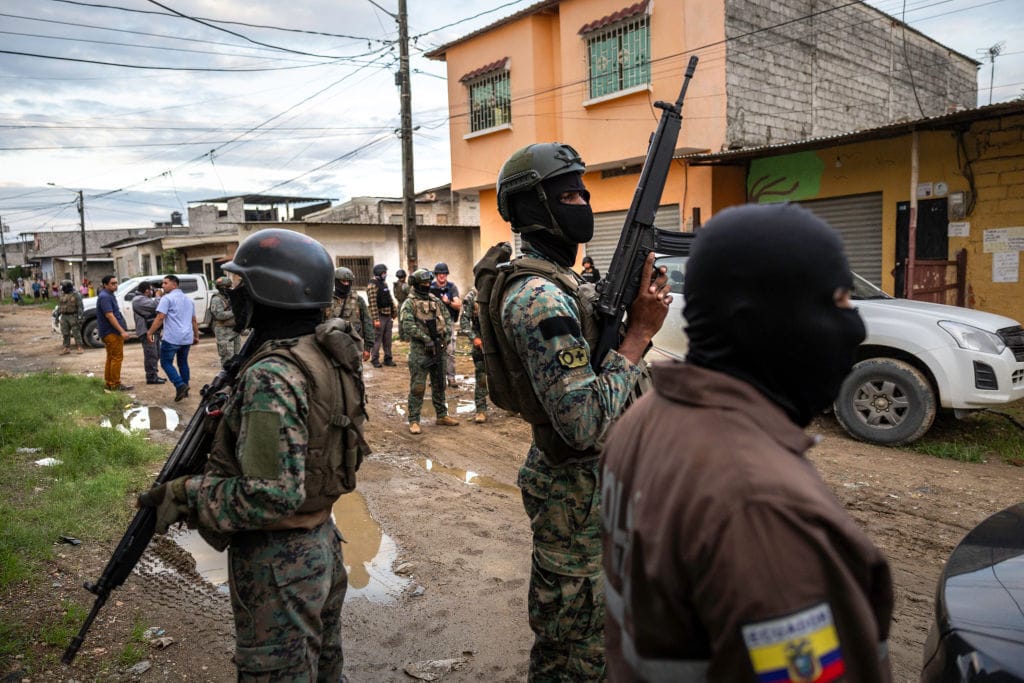
While official data remains scarce, reports suggest homicides have declined sharply since the state of emergency was declared in January. Nonetheless, other crimes, including kidnappings and extortions, persist, with 1,543 cases reported between January and early March. The coastal city of Guayaquil, a hotbed of cartel activity, has witnessed a fivefold increase in such offenses compared to last year.
To help fund the campaign, Noboa’s administration has raised value-added tax to 15% from 12%, while simultaneously seeking $3 billion in funding from the IMF. The economic toll of the crackdown could be further exacerbated by potential IMF demands for fuel-subsidy reductions and additional fiscal consolidation efforts, consultancy FrontierView noted last week.
Latin America’s quiet success stories buck regional trends
While Latin America’s traditionally strong economies such as Chile and Peruhave been undermined by political instability and its giants are struggling to find a clear narrative, smaller market-friendly countries have been quietly rewarding investors. Paraguay, Uruguay, and the Dominican Republic have emerged as Latin America’s post-Covid success stories, thanks to their robust economic models underpinned by strategic investments and policy reforms.
This week President Santiago Peña of Paraguay highlighted his country’s winning economic model, which combines raw materials with value-added technology, as the key driver for the projected 8-9% growth rate. Paraguay has moved quickly on pro-market reforms, routinely beaten analysts estimates, and tackled problems head on, landing a partnership with the FBI just weeks after an economic report raised concerns about the rule of law.

The Dominican Republic has consistently outperformed its peers, delivering an average 4.9% growth over the past 50 years, propelling the small island nation to become the seventh-largest economy in Latin America. With a pro-investment, pro-business approach, coupled with increased social spending, President Luis Abinader has struck a delicate balance, fostering economic growth while maintaining social stability.
In Uruguay, a combination of stable politics, pro-financial sector regulations and strong macroeconomic management has helped the economy consistently outperform. While challenges such as climate change, corruption, and fiscal constraints persist, the region’s small economies look likely to deliver sustainably sound policies, strategic investment destinations, and strong growth.
What we’re reading
Zimbabwe lets currency fall while it weighs gold standard (Bloomberg)
Zimbabwe removes duty on food imports to avert hunger (The Africa Report)
Zambia’s $13b debt stand-off an ‘indictment’ of global system, says president (FT)
Threat of regional war intensifies as DR Congo rebels close in on Goma (FT)
EU removes Uganda from money laundering blacklist (Monitor Uganda)
Uganda’s gold exports grew 10-fold to $2.3 billion in 2023 (African Finance Review)
Kenyan stocks have shilling to thank for world-beating returns (Bloomberg)
Climate change puts pressure on Kenya’s water resources (FT)
Somali pirates return, adding to global shipping crisis (Reuters)
Ethiopia’s pharmacies run short of drugs due to forex crisis (Semafor)
Refugee camps in Chad are overcrowded and running out of aid, and Sudanese refugees keep coming (AP)
More tough times ahead for Ghana cedi as debt workout drags (Bloomberg)
Despite being on FATF ‘grey list’, Nigeria, South Africa still attracting investors (The Africa Report)
Failing water system is South Africa’s next crisis (Bloomberg)
Morocco’s $260m missile deal raises stakes amid regional tensions (Army Technology)
Egypt, mired in economic crisis, sells off its land and infrastructure to Gulfcountries (Le Monde)
Africa’s biggest economies set to hold interest rates as inflation risks linger (Bloomberg)
Africa has become the newest contest for cash-rich Arab rivals (Bloomberg)
Web traffic bounces from Angola to Brazil and back to dodge West Africa fault (Bloomberg)
Pakistan strikes preliminary deal with IMF for final bailout payment (Voice of America)
Oman LNG signs gas supply deal with Germany’s SEFE (Muscat Daily)
UAE eyes further Africa deals after Egypt bailout (Bloomberg)
US approves $2.2b sale of battle tanks to Bahrain (France 24)
UN seeks $4b for aid in Syria as humanitarian crisis deepens (AP)
Saudi Arabia reportedly in talks with VC firms for $40 billion AI fund (CNBC)
Saudi Arabia prevented US using its territories strike Yemen’s Houthis, official says (Middle East Monitor)
Russia and China strike deal with Yemen’s Houthis to ensure ship safety (Politico)
Iran leans on local companies with projects to boost oil output (Bloomberg)
Iran fears loss of clout in the Caucasus (Radio Free Europe)
Iraq to curb oil exports to compensate for exceeding OPEC+ quota (Reuters)
Despite Gaza conflict, Israel among main natural gas exporters to Egypt (Mercopress)
Romania to host largest NATO military base in Europe (BalkanInsight)
Ukrainians advance on renewable energy as Russia pummels power plants (Radio Free Europe)
US urges Ukraine to halt strikes on Russian oil refineries (FT)
Russia’s backdoor to the global banking system is slamming shut (WSJ)
Russia’s Putin faces challenge balancing economic stability with the costly war (FrontierView)
China’s imports of Russian coal slump as import taxes bite (Bloomberg)
Rule of law trajectory ‘can swing rapidly’ in Emerging EU democracies (BalkanInsight)
Argentina’s Javier Milei slashes costs at SOEs amid resistance to privatizations in Congress (FT)
Why the Panama canal didn’t lose money when ship crossings fell (NYT)
Brazil exploring ways to import gas from Argentina’s Vaca Muerta play, energy minister says (Reuters)
Mexico to offer Venezuelans jobs and $660 stipend to return home (Bloomberg)
Oil companies expand methane detection campaign in emerging economies (FT)
We are committed to providing FMN readers with a free weekly digest of politically unbiased, succinct and clear news and information from frontier and small emerging markets.
Please consider becoming a paid supporter to help cover some of our costs and support our continued development of sharp markets-focused coverage and new informational products.


